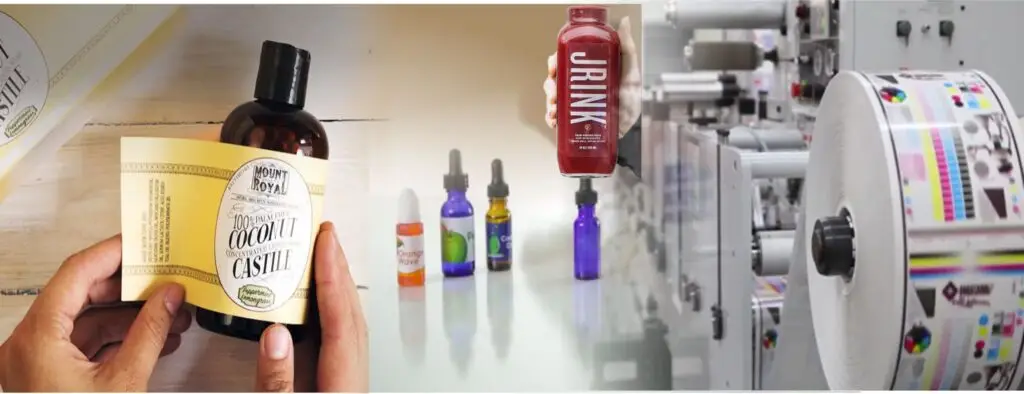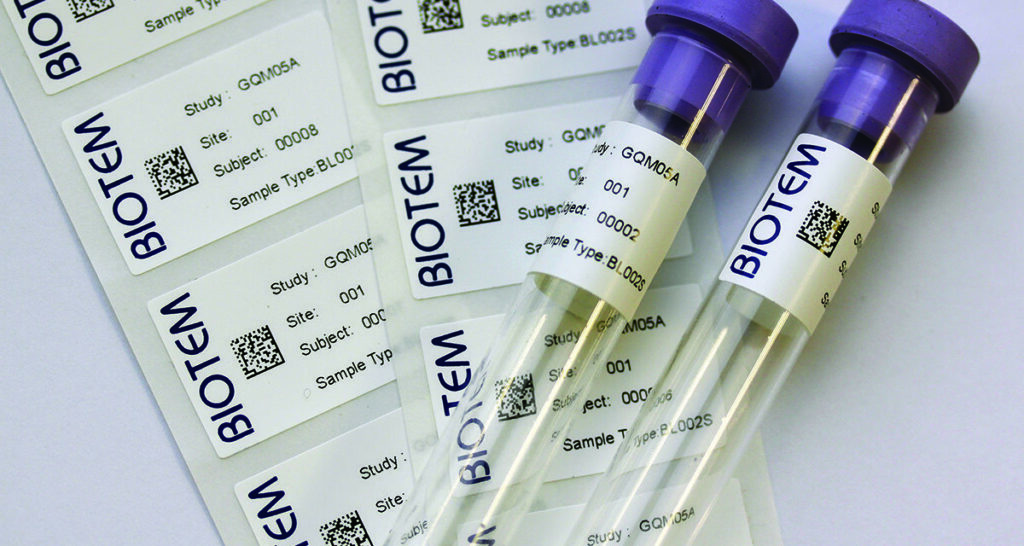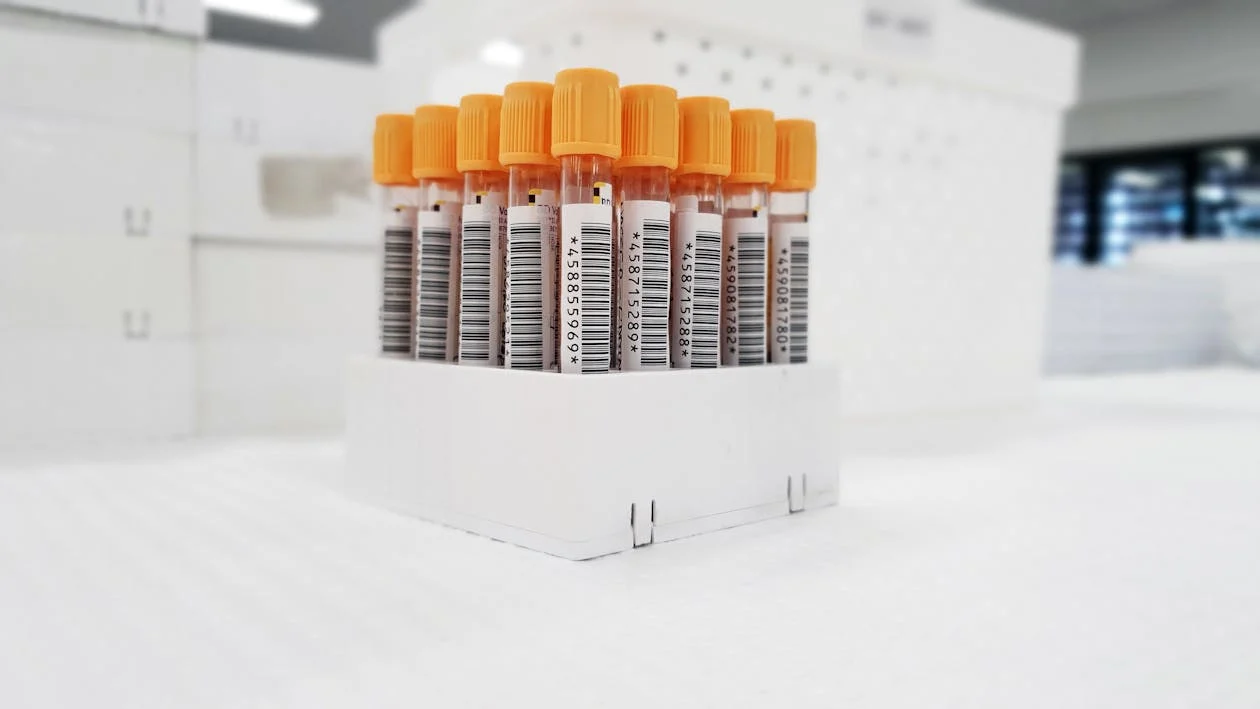Barcode International is the best Pharma label manufacturers in India
We specialize in producing labels specifically designed for the pharmaceutical industry.
Pharma labels play a crucial role in providing essential information about medications, including dosage instructions, expiration dates, warnings, and regulatory compliance details.
Why need a Pharma Label manufacturers?
Pharma labels serve several critical functions:
- Regulatory Compliance: Ensure your labels meet strict regulations and standards set by authorities like the FDA and EMA.
- Product Information: Provide essential details including drug name, dosage, usage instructions, and warnings.
- Safety and Traceability: Labels play a key role in preventing counterfeiting and ensuring product traceability.
- Brand Identity: Enhance brand recognition and trust through clear, professional labeling.
Here are some key aspects of pharma label manufacturers:
Compliance and Regulation:
Pharmaceutical labels must adhere to strict regulatory requirements imposed by health authorities such as the FDA (Food and Drug Administration) in the United States, the EMA (European Medicines Agency) in Europe, and other regulatory bodies worldwide. Manufacturers must ensure that labels meet all relevant standards and guidelines for safety, readability, and accuracy of information.
Material Selection by Pharma Label manufacturers:
As well as pharmaceutical labels are often made from specialized materials that are tamper-evident, durable, and resistant to moisture, chemicals, and other environmental factors.
Common materials used for pharmaceutical labels include synthetic papers, polyethylene, polypropylene as well as other plastic films. Barcode International is a top pharma label suppliers in India.
Printing Techniques:
As much as, high-quality printing techniques are used to ensure clear and legible text, barcodes, and graphics on pharmaceutical labels.
Commonly we use Digital printing, flexographic printing, and thermal transfer printing. Variable data printing allows for the customization of labels with unique information such as batch numbers, expiration dates, and serial numbers.
Security Features used in Pharma Label:
Pharmaceutical labels may incorporate various security features to prevent counterfeiting and tampering.
These features can include holographic elements, security inks, RFID (Radio Frequency Identification) tags, and specialty adhesives that leave behind evidence of tampering when removed.
Serialization and Track-and-Trace:
Above all, many pharmaceutical products are subject to serialization requirements to enable track-and-trace capabilities throughout the supply chain. Manufacturers may incorporate unique serial numbers, 2D barcodes, QR codes, or RFID tags into labels to facilitate product authentication.
Customization and Branding:
All in all, pharmaceutical companies often require customized labels that reflect their brand identity and convey important messaging to consumers.
Label manufacturers work closely with pharmaceutical clients to design and produce labels that meet their specific branding and marketing objectives.

Quality Assurance:
After that, stringent quality control measures are implemented throughout the manufacturing process to ensure the accuracy, consistency, and integrity of pharmaceutical labels.
This includes rigorous inspection of materials, inks, printing processes, and finished products to meet regulatory standards and customer requirements.
By specializing as pharma label manufacturers, these companies play a critical role in ensuring the safety, efficacy, and compliance of medications distributed to patients worldwide.
Batch Number and Lot Information:
In general, we offer custom pharma labels include a batch number or lot number, which allows manufacturers to trace the medication back to its production batch in case of quality issues or recalls.
Barcodes in Pharma Label:
We use barcodes in pharma labels to facilitate accurate identification and tracking.
Barcoded information may include the National Drug Code (NDC), serial numbers, and other relevant data.

Why use Pharma Label?
Pharmaceutical labeling serves multiple critical purposes in the healthcare industry, extending beyond mere identification and branding. Being a Pharma label manufacturers, Here are the primary uses and importance of pharmaceutical labeling:
1. Regulatory Compliance for pharma label
Pharmaceutical labels are essential for regulatory compliance. They provide critical information required by regulatory bodies such as the FDA (Food and Drug Administration) in the US or EMA (European Medicines Agency) in Europe. This information includes:
- Drug Identification: Name of the drug and active ingredients.
- Dosage Information: Strength, dosage form (e.g., tablets, capsules), and administration instructions.
- Warnings and Precautions: Safety information, contraindications, and potential side effects.
- Storage Conditions: Recommended storage temperatures and conditions to maintain drug stability.
- Expiration Date: Shelf life of the medication for patient safety and efficacy.
2. Patient Safety in pharma label
Pharmaceutical labels play a crucial role in ensuring patient safety:
- Clear Instructions: Provides patients with clear and concise instructions on how to use the medication safely and effectively.
- Allergen Warnings: Alerts patients to potential allergens present in the medication.
- Child Safety Information: Includes child-resistant packaging instructions where applicable to prevent accidental ingestion by children.
3. Facilitation of Dispensing and Use in manufacturing
Labels facilitate the dispensing and proper use of medications:
- Pharmacy Dispensing: Identifies the medication and dosage instructions for pharmacists to dispense accurately.
- Healthcare Provider Guidance: Provides healthcare professionals with information for prescribing and administering medications to patients.
4. Traceability and Supply Chain Management for pharma label
Pharmaceutical labeling supports traceability throughout the supply chain:
- Batch Number and Expiry Tracking: Enables tracking of medication batches and ensures timely withdrawal of expired products.
- Serialization: Incorporates unique serial numbers to prevent counterfeit medications and ensure authenticity across the supply chain.
5. Promotion and Branding
Labels serve as a platform for pharmaceutical companies to promote their brands:
- Brand Identification: Displays the company logo and branding elements to enhance brand recognition.
- Differentiation: Differentiates products from competitors through distinctive labeling designs and features.
- Marketing Messages: Communicates product benefits and features to healthcare providers and patients.
6. Legal Compliance and Liability Protection
Pharmaceutical labels help protect manufacturers from legal liabilities:
- Compliance with Labeling Regulations: Ensures labels meet legal requirements, reducing the risk of regulatory fines and penalties.
- Liability Protection: Provides accurate and comprehensive information to mitigate risks associated with medication errors and adverse events.
7. Patient Education and Empowerment
Labels empower patients with information to make informed decisions about their medications:
- Patient Information Leaflets (PILs): Includes additional detailed information about the medication, its uses, and potential side effects.
- Access to Information: Provides patients with access to contact information for healthcare professionals and drug information resources.
Importance of Pharma Labels:
Patient Safety: Clear and accurate labeling helps prevent medication errors, adverse reactions, and misuse.
Regulatory Compliance: Labels comply with regulatory requirements to ensure medications meet safety and efficacy standards.
Information Accessibility: Provides healthcare professionals and patients with essential information for safe medication use.
Product Identification: Enables accurate identification and differentiation of medications in clinical and retail settings.
Communication: Facilitates effective communication of critical information between healthcare providers, pharmacists, and patients.
In summary, medicine labels are vital tools that ensure the safe and effective use of medications by providing essential information to healthcare professionals and patients. By adhering to regulatory standards and incorporating clear, comprehensive labeling, pharmaceutical companies and healthcare providers contribute to patient safety and healthcare quality.
Frequently Asked Questions (FAQs)
1. What regulations do pharma labels need to comply with?
- Pharma labels must meet regulations from authorities such as the FDA in the US, EMA in Europe, and other regional bodies.
2. What materials are used by pharma labels manufacturers?
- Durable materials like polyester and polypropylene are recommended for their resistance to moisture and chemicals.
3. Can I customize my pharma labels?
- Yes, most manufacturers offer extensive customization options including design, size, and security features.
4. What printing technology is best for pharma labels?
- Digital printing is ideal for high-resolution and complex designs, while flexographic printing is cost-effective for large runs.
Conclusion
Selecting the right pharma label manufacturer is essential for ensuring that your labels are compliant, durable, and effective in conveying crucial information. By considering factors such as regulatory compliance, material quality, printing technology, and customer service, you can find a manufacturer that meets your specific needs and enhances your product’s market presence. Use this guide to make informed decisions and choose the best partner for your pharmaceutical labeling requirements.

Label Manufacturer in Manesar
[…] Pharma Label Manufacturers […]